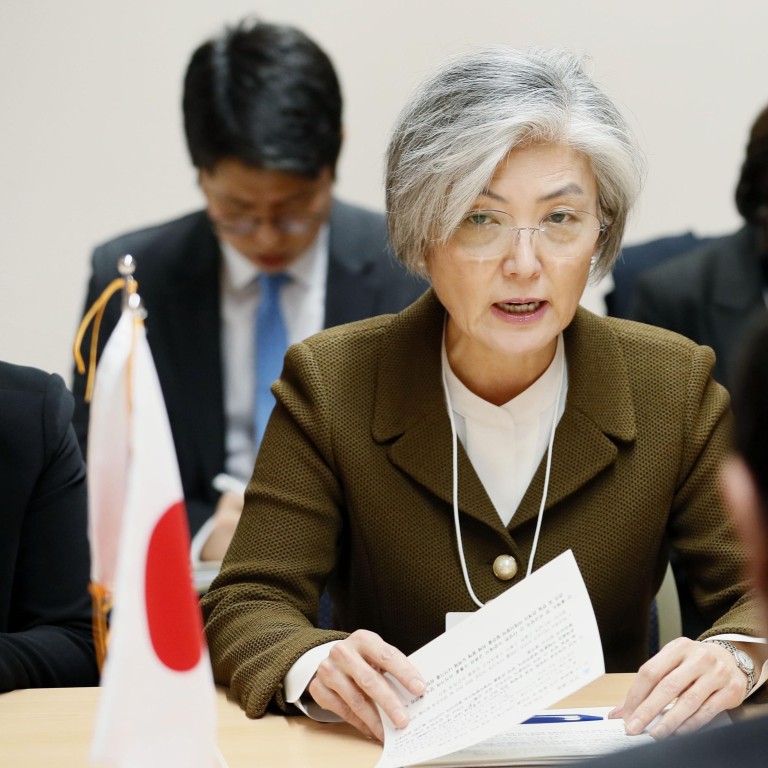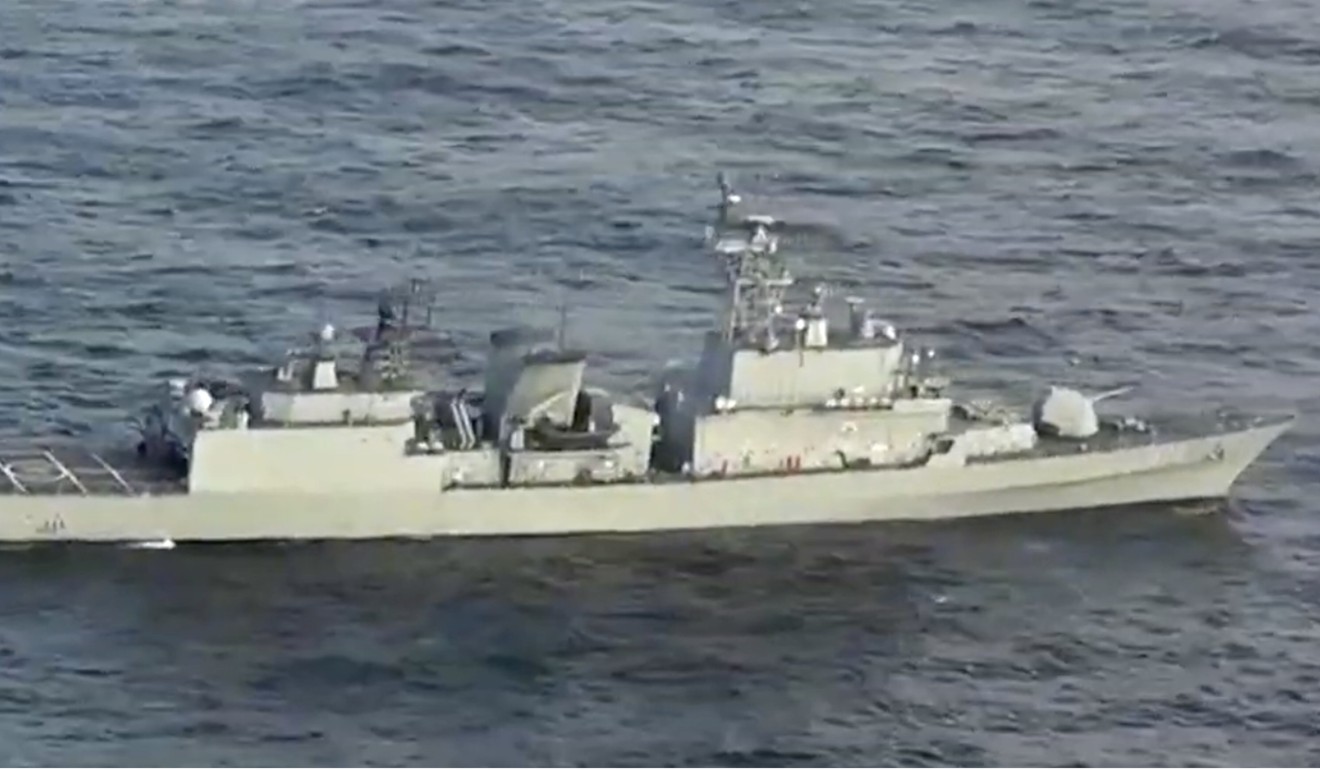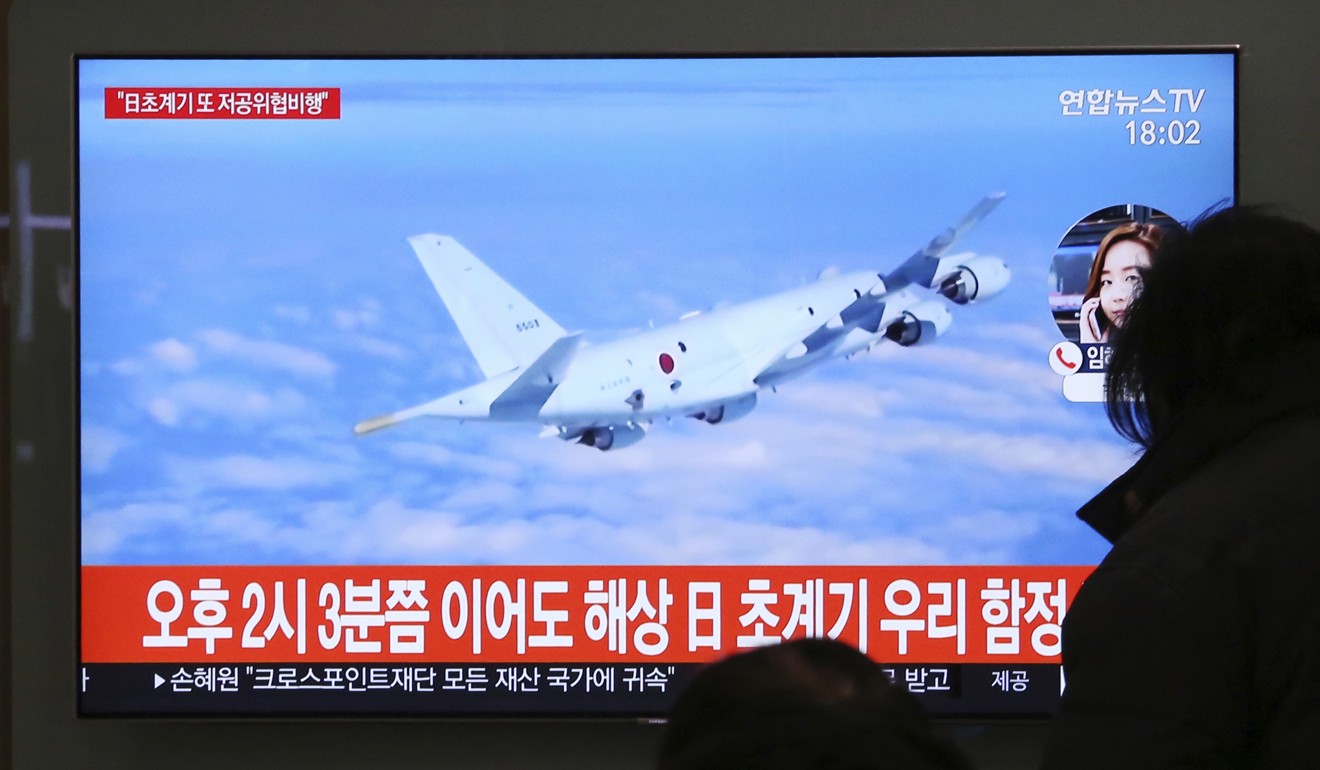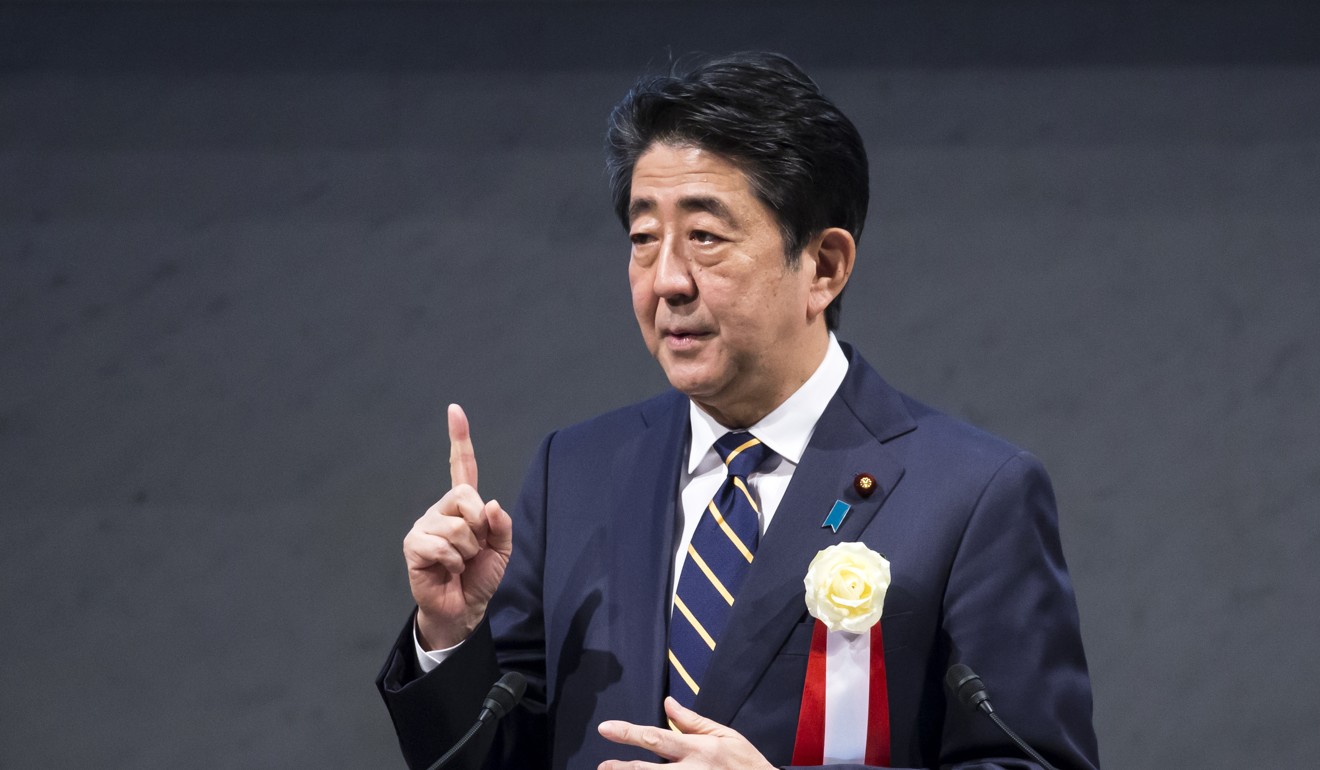
Wartime sex abuse in spotlight as South Korea-Japan rift deepens
- Foreign Minister Kang Kyung-wha says South Korea will host an international conference on sexual violence in conflict this year
- This is the latest sign of escalating tensions, following incidents involving air and naval defence forces
South Korea will use an international conference to highlight wartime atrocities committed by the Japanese, including sex abuse, its Foreign Minister Kang Kyung-wha has said, in a move that is likely to escalate tensions between the countries.
“The conference is not to address [the comfort women] issue per se, but to make sure that their historical experience is not lost,” Kang said.

Kang said Seoul wanted to cooperate with Tokyo on North Korea and security issues but it still needed to resolve this difficult history.
Analysts like James Kim of the Asan Institute in Seoul said Kang’s remarks would only add to the breakdown in bilateral relations.
US wants Japan and South Korea to tag team China. But history is in the way
South Korean courts angered Tokyo in November by ruling that former forced labourers had the right to sue Japanese companies for compensation. Tokyo insists such claims were settled under a treaty signed in 1965 to normalise relations.
In December, Japan accused a South Korean destroyer of aiming its fire-control radar at a Japanese aircraft, which the Korean side denied. The issue snowballed as South Korea then accused a Japanese jet of carrying out intimidating fly-bys near South Korean warships.

Both sides have since uploaded video evidence to YouTube to back their claims.
The rhetoric has spilled over into cancellations of joint military operations. Japan’s defence ministry is cancelling a planned stop in Busan by its helicopter destroyer Izumo, while the commander of the South Korean Navy’s First Fleet, R. Admiral Kim Myung-soo, has shelved a visit to Japan scheduled for next month.
South Korea warns of retaliation against Japan’s ‘provocative’ flights
In November, Japan’s oldest English language newspaper the Japan Times softened its description of comfort women from “women forced to provide sex for Japanese troops before and during the second world war” to “women who worked in wartime brothels, including those who did so against their will”.
The paper took a similar approach to forced labourers, calling them “wartime labourers”. Conservative groups in Japan want to revise how Japan’s second world war activities are described; critics say the changes gloss over its wartime actions.
Some analysts believe the two sides’ shared interests will outweigh their grievances.
“Both countries are in the midst of deepening relations with the US to manage regional uncertainties,” said Lim Tai Wei, senior lecturer at Singapore University of Social Sciences.

“South Korea needs Japan in the process of managing North Korean denuclearisation” and Tokyo needs Seoul’s cooperation in freeing kidnapped citizens held in North Korea, Lim said.
“I myself will directly face Chairman Kim Jong-un to resolve North Korea’s nuclear and missile issues, as well as the abductions issue,” Abe said.

